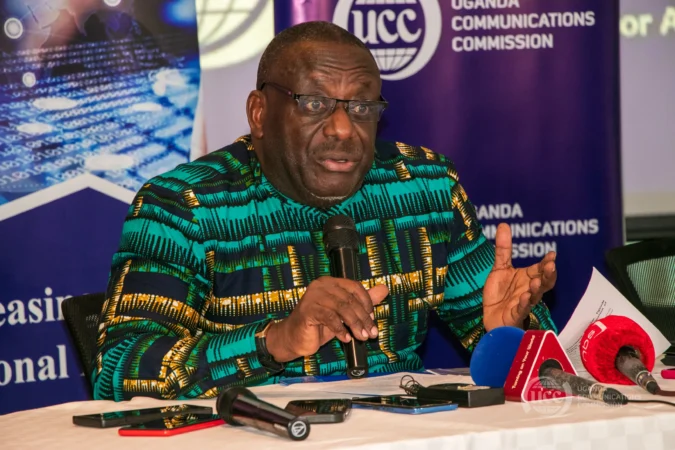NAIROBI, Kenya — A generation caught between economic survival and social scrutiny is reshaping the face of Kenya’s digital economy. With a smartphone, an internet connection, and creative ingenuity, Kenya’s Gen Z is exploring uncharted territor; one where financial empowerment, digital fame, and personal reputation intersect, sometimes in controversial ways.
At the center of this national conversation is Alicia Kanini, a young content creator whose viral videos have captivated, enraged, and intrigued many. Her meteoric rise, powered by adult-themed content on platforms like TikTok and Instagram, has provoked a countrywide debate on youth agency, online entrepreneurship, and shifting social norms.
But Alicia is not alone. Her story is emblematic of a wider movement: an increasingly bold generation navigating the internet’s promises and pitfalls in a country still trying to catch up with the rules of the digital age.
Some of these creators reportedly use coded language and private links to guide followers to external sites with explicit material, a tactic increasingly seen in digital spaces globally.
The hustle goes digital
According to the Communications Authority of Kenya, internet penetration in Kenya is above 94%, with the majority of users aged between 18 and 29.
With formal employment opportunities dwindling, especially for youth, Kenya’s Gen Z is turning to online platforms for income. TikTok dances, Instagram influencing, YouTube tutorials, e-commerce, and livestreaming have become tools of survival and self-expression.
“Young people today are not waiting to be employed. They’re building digital empires,” says Dr. Walter Dembélé, a digital economy researcher at Vivid Voice News. “But what we’re seeing is a widening gap between economic empowerment and ethical considerations.”
Platforms like OnlyFans and exclusive Telegram groups have gained traction among Kenyan youth looking to monetize adult content.
And while some creators, like Alicia Kanini, have been criticized for straddling the line between bold expression and pornography, they argue that they’re simply using the tools available to survive in an unforgiving economy.
“People judge us without knowing the pressure we face to make ends meet. I post what I post because it pays rent,” says a 21-year-old content creator from Nairobi, who asked not to be named.
Redefining reputation
The uproar surrounding Alicia’s videos reveals a generational clash. While older Kenyans view such online ventures as destructive to personal and family reputation, many Gen Z creators define “reputation” through likes, shares, and monetization—not traditional morality.
“In the digital economy, reputation is quantifiable,” says Faith Mwikali, a 23-year-old influencer from Mombasa. “It’s not about who respects you in your estate; it’s about who follows you, who pays for your content, and how much you’re earning.”
This outlook has provoked anxiety among parents and educators who worry that online infamy might haunt these young creators down the line—especially when explicit content becomes permanently etched into the internet’s memory.
More than just the headlines
To paint Gen Z with a single brush would be unjust. Many are building ethical, creative brands online: fitness coaching, coding tutorials, fashion design, food blogs, and mental health advocacy.
These youths are not seeking controversy but opportunity, using their digital fluency to bypass institutional barriers and reach global audiences.
Still, the highly visible cases, especially those involving adult content, tend to dominate headlines, risking the impression that online hustle equals moral compromise.
Society’s big questions
The Alicia Kanini saga, and others like it, raise urgent questions: Where is the line between personal freedom and public responsibility in the digital space? What support structures, legal, educational, or cultural exist to help youth navigate digital livelihoods wisely?. And can we balance freedom of expression with safeguards against exploitation and irreversible reputational damage?.
Also Read: Kenya to charge parents who allow children access to online pornography, says CS Kabogo
“Kenya needs to modernize its approach to youth entrepreneurship,” argues Dr. Wanjiku Mugo, a digital policy analyst. “This includes comprehensive digital literacy, regulatory reform, and open intergenerational dialogue.”
A generation demanding new rules
In countries like Nigeria and South Africa, debates mirror Kenya’s; where viral content is both a goldmine and a moral minefield.
Kenya’s digital revolution is being shaped by its youngest citizens; bold, expressive, and unwilling to conform to outdated models of success. Their choices, however controversial, are reflections of a deeper economic truth: opportunity is online, and they are determined to seize it.
Whether society embraces this shift or resists it, one thing is certain: the digital frontier isn’t going anywhere.
In the age of algorithms, Gen Z isn’t just scrolling, they’re surviving. The question is: who sets the rules for this new digital frontier?
Kenya must choose whether to shame or support its youth navigating new economies.







